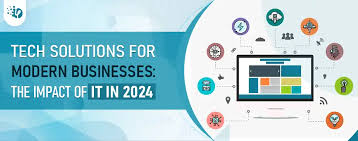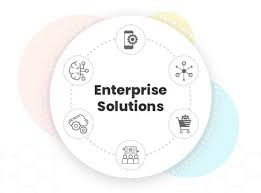Empowering Businesses: The Role of IT Infrastructure Consulting Firms in Driving Success
IT Infrastructure Consulting Firms: Streamlining Businesses for Success
In today’s digital age, businesses rely heavily on technology to operate efficiently and stay competitive. Managing a robust IT infrastructure is crucial for ensuring smooth business operations, data security, and scalability. This is where IT infrastructure consulting firms play a vital role in helping organizations optimize their technological capabilities.
IT infrastructure consulting firms specialize in providing expert guidance and support to businesses looking to enhance their IT systems. These firms offer a wide range of services, including network design, cybersecurity solutions, cloud computing integration, software development, and more. By leveraging the expertise of these consulting firms, businesses can streamline their IT operations and align them with their strategic goals.
One of the key benefits of partnering with an IT infrastructure consulting firm is gaining access to specialized knowledge and experience. These firms employ skilled professionals who stay up-to-date with the latest technologies and best practices in the industry. By tapping into this pool of expertise, businesses can implement cutting-edge solutions that drive innovation and efficiency.
Furthermore, IT infrastructure consulting firms help businesses navigate complex technological challenges. Whether it’s upgrading legacy systems, implementing cybersecurity measures, or migrating to the cloud, these firms provide tailored solutions that address specific needs and requirements. By working closely with clients to understand their objectives, constraints, and opportunities, consulting firms develop customized strategies that deliver tangible results.
Another advantage of engaging with IT infrastructure consulting firms is cost-effectiveness. Instead of hiring full-time IT staff or investing in expensive technologies independently, businesses can outsource their IT needs to consulting firms on a project basis. This allows companies to access top-tier talent and resources without incurring high overhead costs.
In conclusion, IT infrastructure consulting firms play a crucial role in helping businesses harness the power of technology for growth and success. By partnering with these firms, organizations can optimize their IT systems, enhance security measures, improve operational efficiency, and drive innovation. In a rapidly evolving digital landscape, having a trusted partner in IT infrastructure consulting is essential for staying ahead of the curve.
Top Questions About IT Infrastructure Consulting Firms: Leaders, Roles, and Services
- Who is the largest IT consulting firm?
- What is IT infrastructure consulting?
- What is the role of IT infrastructure consultant?
- What is an IT consulting company?
- Who is the biggest IT consulting firm?
- Who are the Big 4 IT consulting firms?
- What are the top 5 IT consulting firms?
Who is the largest IT consulting firm?
When it comes to the title of the largest IT consulting firm, several global players stand out in the industry. Companies like Accenture, Deloitte, IBM Global Services, and Capgemini are among the top contenders for this prestigious position. These firms have established themselves as leaders in providing comprehensive IT consulting services to a wide range of clients worldwide. With their extensive resources, diverse expertise, and innovative solutions, these industry giants continue to set the standard for excellence in IT consulting on a global scale.
What is IT infrastructure consulting?
IT infrastructure consulting involves the specialized expertise and guidance provided by consulting firms to help businesses optimize their technological systems and operations. These firms offer strategic advice, technical solutions, and implementation support to ensure that an organization’s IT infrastructure aligns with its business goals and requirements. IT infrastructure consulting covers a wide range of services, including network design, cybersecurity assessments, cloud integration, software development, and more. By leveraging the knowledge and experience of IT infrastructure consultants, businesses can enhance their efficiency, security, and scalability in the ever-evolving digital landscape.
What is the role of IT infrastructure consultant?
The role of an IT infrastructure consultant is pivotal in guiding organizations to optimize their technological capabilities and enhance their overall IT systems. IT infrastructure consultants are experts in assessing, planning, and implementing solutions that align with a company’s strategic objectives. Their responsibilities include analyzing existing IT infrastructure, identifying areas for improvement, recommending suitable technologies and practices, and overseeing the implementation process. By leveraging their specialized knowledge and experience, IT infrastructure consultants help businesses streamline their operations, increase efficiency, ensure data security, and adapt to evolving technological trends. Their role is essential in driving innovation and facilitating sustainable growth within organizations through tailored IT strategies and solutions.
What is an IT consulting company?
An IT consulting company is a specialized firm that offers expert advice, services, and solutions to businesses seeking to optimize their information technology infrastructure. These companies employ skilled professionals with in-depth knowledge of IT systems, networks, cybersecurity, software development, and more. IT consulting firms work closely with clients to assess their current IT environment, identify areas for improvement, and develop tailored strategies to enhance efficiency, security, and overall performance. By leveraging their expertise and industry insights, IT consulting companies help organizations navigate complex technological challenges and achieve their business objectives through innovative solutions and best practices.
Who is the biggest IT consulting firm?
When it comes to identifying the biggest IT consulting firm, it’s important to consider various factors such as revenue, global presence, client base, and service offerings. While there are several prominent players in the IT consulting industry, firms like Accenture, Deloitte, IBM Global Services, and Capgemini are often recognized as some of the largest and most influential players in the field. These firms have established themselves as leaders in providing a wide range of IT consulting services to businesses across different sectors. Their extensive expertise, resources, and track record of successful projects have contributed to their reputation as major players in the IT consulting landscape.
Who are the Big 4 IT consulting firms?
When it comes to prominent IT consulting firms on a global scale, the “Big 4” are often referenced as the leading players in the industry. These top-tier firms include Deloitte, PricewaterhouseCoopers (PwC), Ernst & Young (EY), and KPMG. Known for their extensive expertise in IT consulting, these firms offer a wide range of services to help businesses navigate complex technological challenges, optimize their IT infrastructure, and drive digital transformation. With a strong reputation for delivering high-quality solutions and innovative strategies, the Big 4 IT consulting firms are trusted advisors to organizations seeking to enhance their technological capabilities and achieve sustainable growth.
What are the top 5 IT consulting firms?
When it comes to IT consulting firms, there are several prominent names that stand out for their expertise and track record in the industry. Some of the top 5 IT consulting firms include Accenture, Deloitte, IBM Global Services, PricewaterhouseCoopers (PwC), and Ernst & Young (EY). These firms are known for their comprehensive range of services, innovative solutions, and deep industry knowledge. Clients often turn to these top IT consulting firms for strategic guidance, digital transformation initiatives, cybersecurity services, cloud computing solutions, and more. With a proven reputation for delivering results and driving business success, these firms continue to be leaders in the IT consulting landscape.






